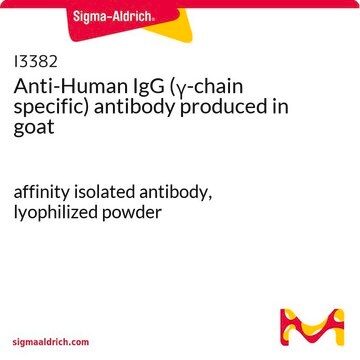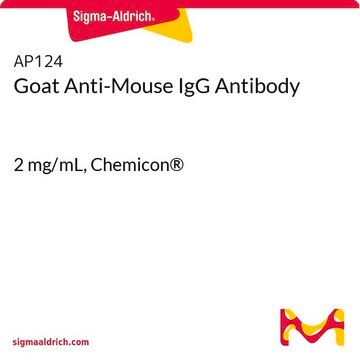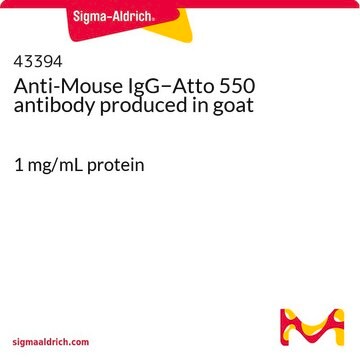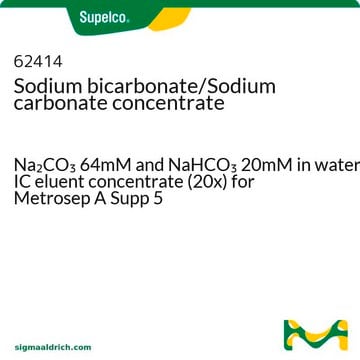78102
Anti-Mouse IgG - Atto 633 antibody produced in goat
~1 mg/mL IgG, affinity isolated antibody
Synonym(s):
Anti-Mouse IgG−Atto 633 antibody produced in goat, Atto 633 [goat-Anti-mouse IgG]
About This Item
Recommended Products
biological source
goat
conjugate
Atto 633 conjugate
antibody form
affinity isolated antibody
antibody product type
secondary antibodies
clone
polyclonal
contains
50% glycerol as stabilizer
species reactivity
mouse
concentration
~1 mg/mL IgG
fluorescence
λex 636 nm; λem 650 nm in PBS
storage temp.
−20°C
target post-translational modification
unmodified
General description
Anti-mouse IgG (whole molecule) is purified from goat anti-mouse IgG antiserum to remove essentially all goat serum proteins, including immunoglobulins, which do not specifically bind to mouse IgG. The antibody preparation is solid phase adsorbed with human serum proteins to ensure minimal cross reactivity. Goat anti-mouse is conjugated to Atto 633 NHS and purified by gel permeation chromatography and dialysis to remove unbound dye. Atto 633-goat anti mouse IgG associates with mouse IgGs.
Immunogen
Application
Physical form
Analysis Note
Legal Information
Disclaimer
Not finding the right product?
Try our Product Selector Tool.
Hazard Statements
Precautionary Statements
Hazard Classifications
Aquatic Chronic 3
Storage Class Code
10 - Combustible liquids
WGK
WGK 1
Flash Point(F)
Not applicable
Flash Point(C)
Not applicable
Personal Protective Equipment
Certificates of Analysis (COA)
Search for Certificates of Analysis (COA) by entering the products Lot/Batch Number. Lot and Batch Numbers can be found on a product’s label following the words ‘Lot’ or ‘Batch’.
Already Own This Product?
Find documentation for the products that you have recently purchased in the Document Library.
Articles
Immunoblotting (Western blot transfer) is a common technique in modern proteomics research.
Our team of scientists has experience in all areas of research including Life Science, Material Science, Chemical Synthesis, Chromatography, Analytical and many others.
Contact Technical Service








